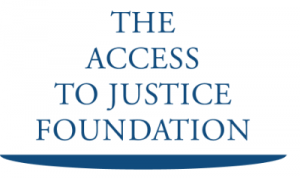Supporting Pro Bono
Funding pro bono activity is one of the key ways in which we reach our key strategic aim to fund quality specialist legal advice. Although by definition pro bono advice is provided free of charge, the infrastructure that enables it to take place does need funding. Funds raised from pro bono costs orders are invested back into sustaining pro bono and access to free legal advice. From our fundraising efforts we also raise vital funds which go to support organisations providing free legal advice across the UK.
Last year, we launched a pro bono grants programme and received 111 applications for funding with a total ask of over £2,750,000. This demand (as always) outstripped the funding available but did give us the opportunity to learn from the snapshot of the pro bono sphere and what would be required to maintain it at its current level.
We awarded grants totalling £119,399 to nine organisations working to provide pro bono legal support where it was needed most. Later, I’ll go on to share the learning we gathered from the grantees.
The programme aimed to further one or more of the following objectives:
- Increase and/or sustain pro bono provision at a regional/ local level in areas of family and/ or social welfare law.
- Increase and/or sustain the availability of pro bono provision in areas of family and/ or social welfare law through staff and/or volunteer training.
- Increase the availability of access to justice in family and/ or social welfare law for those who may be vulnerable and/or are living in poverty.
Who did we fund?
What we learned
We drew insights from our grantees on the state of the pro bono landscape. Our grantees highlighted four key points to me:
Sustainable volunteering
During the pandemic, our grantees noticed that professionals were more likely to volunteer as pro bono projects switched to a more flexible and remote model. After that period, as they returned to their offices and the rise in cost of living began to take effect, lawyers had less time and were less able to do unpaid work; this highlighted to me how important it is for volunteers to have a firm-wide support and for our grantees to have firm-wide commitment.
Infrastructure support
Just like how a firm requires legal executives, paralegals and other support to run an effective service, pro bono services also need similar resourcing and infrastructure. Basic project costs can often go overlooked and I have seen how these unexpected costs have become a larger issue as these small projects navigate the cost of living crisis.
Collaboration
Pro bono volunteers have the opportunity to use their expertise to support advice giving organisations, to collaborate on the delivery of pro bono projects. One grantee was able to provide a more effective service to their clients by ensuring sufficient time was allocated for pro bono appointments slots, following guidance from their volunteer firm. Our grantees also told me that there continues to be a skills gap in the pro bono offering which means they can’t cover key areas of social welfare law.
Pro bono is specialist advice
Pro bono provision is specialist advice provision. It sits alongside frontline advice and helps maintain critical advice capacity to support people facing legal crisis. Our pro bono funding allows organisations to reach those who could most benefit from specialist pro bono advice, supports their journey and ensures pro bono volunteers can focus their time on advice giving. However, one of the main issues we hear from grantees is how their pro bono projects often have to be the first to be cut and are the last services to be funded. Our funding aims to support this vital specialist service so that resources aren’t taken away from other frontline services.
As always, we have learned lots from the charities we have funded and I am grateful for their time and their willingness to share their experiences. Pro bono work is a vital tool for the delivery of specialist legal advice and we continue to raise funds through pro bono costs orders and broader fundraising activity so we can support more organisations like these. Current income levels mean we are unable to provide multi-year grants for this work, and we would like this to change.
You can find out more about how you can be part of the picture to help support organisations like these here.
By Sirintiya Booth-Roberts, Grants Manager, The Access to Justice Foundation
